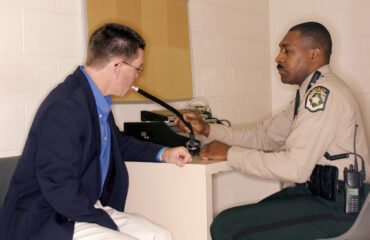Did you know December is Impaired Driving Prevention Month?
Did you know that distracted driving is included in impaired driving prevention month?
Did you know that using a cell phone is as dangerous as impaired driving from alcohol or other drugs?
If you use a cell phone while driving, this article is for you.
For over twenty years, every American President has declared December to be Drunk and Drugged Driving Prevention Month or Impaired Driving Prevention Month. It is recognition of the dangers of impaired driving by alcohol or other drugs and the need for everyone to take action; for everyone to not drive impaired. However, for the past couple of years, a new topic has been included in that Presidential Proclamation: Distracted Driving. Distracted driving is now discussed as a form of impaired driving.
Study finds Talking on a Cell Phone is Impaired Driving
While not considered “new,” it is important to remember the 2006 University of Utah study that indicated drivers who are talking on a cell phone are just as impaired as those who consume too much alcohol. The study concluded: “When driving conditions and time on task were controlled for, the impairments associated with using a cell phone while driving can be as profound as those associated with driving while drunk.”[1]
The study found that while any impairment from a cell phone stops when the driver is no longer using the phone and impairment from alcohol continues long after the person stops drinking, the cell phone user was more likely to be involved in a traffic crash than the alcohol-impaired driver.[2]
According to the study, any cell phone impairment was because the driver was not processing the necessary information to drive safely, and that there was no significant safety improvement if the person used a hands-free cell phone. In other words, the driver’s attention was not on the task of driving, and using a hands-free cell phone was no safer than using a hands-held cell phone.
Distracted Driving Kills
The research is clear, the information is consistent – people are dying every day because someone was talking on a cell phone while driving a car. Just as concerning, approximately a thousand people are injured every day because of a cell phone – and that is just in the United States. Globally tens of thousands are injured daily. Yes, many people consider these statistics “yesterday’s news.” That they are not relevant to what is going on today, that is, until it happens to you.
Teens, adults, senior drivers, male or female no matter the age, or the sex, the risks are significant and it is up to you to change your behavior. When talking about this issue to my friends, the response is usually a recognition that the problem is huge, but it is because of someone else, never themselves. My friends tell me, I understand the risk, but I’m a safe driver. The appropriate response is: No, you are not a safe driver, not if you are talking on a cell phone while driving. Period. You are putting yourself, your family and friends, and everyone else on the road at risk.
In December 2011, the National Transportation Safety Board (NTSB) recognized these facts. Based on the crashes it investigated, and the scientific research, it recommended that every state in the U.S. ban drivers from using a cell phone whether or not it was hands-held or hands-free.
Driving Requires Your Attention
Driving safely requires you perform a number of actions, such as:
- Scanning ahead for any dangers
- Checking your side mirror to see what is next to you
- Looking into the rearview mirror for any approaching risks
- Making sure you are doing the proper speed for the conditions
- Steering the car and staying within the lane
- Listening for sirens or other sounds of imminent harm, and the list continues.
However, when we are talking on a cell phone, those activities are not taking place. When talking on a phone our cognitive attention – what we are thinking — is focused on the phone call, not the driving. As humans, we cannot do both! Talking on the phone is impaired driving because your attention is not on the task at hand, the task that is the most dangerous—driving.
Time to Put the Phone Down
You have heard these statistics. You have seen the news reports and the road crashes. Yet you still talk on the phone while driving. Why? I once heard a speaker ask a very good question. She noted that we are willing to turn our phones off while in a movie theater and while traveling on a plane. Her question was: Why can’t we turn it off while driving? We can wait while in a movie or on a plane to connect with someone else, yet while doing one of the most dangerous tasks we do on a daily basis, we can’t seem to wait while driving a car.
Why does it take a crash for the information to register and for you to act on it? This article is for those of you who won’t stop. This article is for those individuals who think they are safe drivers while talking on a phone – you are not. The research is clear. The facts are consistent. Everyone who talks on the phone and drives is putting pedestrians, cyclists, passengers and drivers at road at greater risk of harm.
December is Impaired Driving Prevention Month
As I stated in the beginning of this post, December is Impaired Driving Prevention Month, and distracted driving is included in that proclamation. As a society we understand the risks that drinking and driving create and more and more people are stopping that behavior. Now is the time to take the next step and recognize that talking on the phone and driving creates the same deadly risks. You can stop creating that risk. You can stop driving impaired. Turn your phone off and focus on your driving.
Will you stop? Let me know in the comments below.
[1] Strayer, D.L.; Drews, F.A., & Crouch, D.J. A Comparison of the Cell Phone Driver and the Drunk Driver. Human Factors. Vol. 48, No. 2, Summer 2006, pp.381-391. Retrieved from http://www.distraction.gov/download/research-pdf/Comparison-of-CellPhone-Driver-Drunk-Driver.pdf
[2] This does NOT mean that impaired driving is safer – Talking on a cell phone while driving and impaired driving due to alcohol or other drugs are ALL extremely dangerous and should not be done while driving.
Get more articles like this
in your inbox
Subscribe to our mailing list and get the latest information and updates to your email inbox.
Thank you for subscribing.
Something went wrong.









